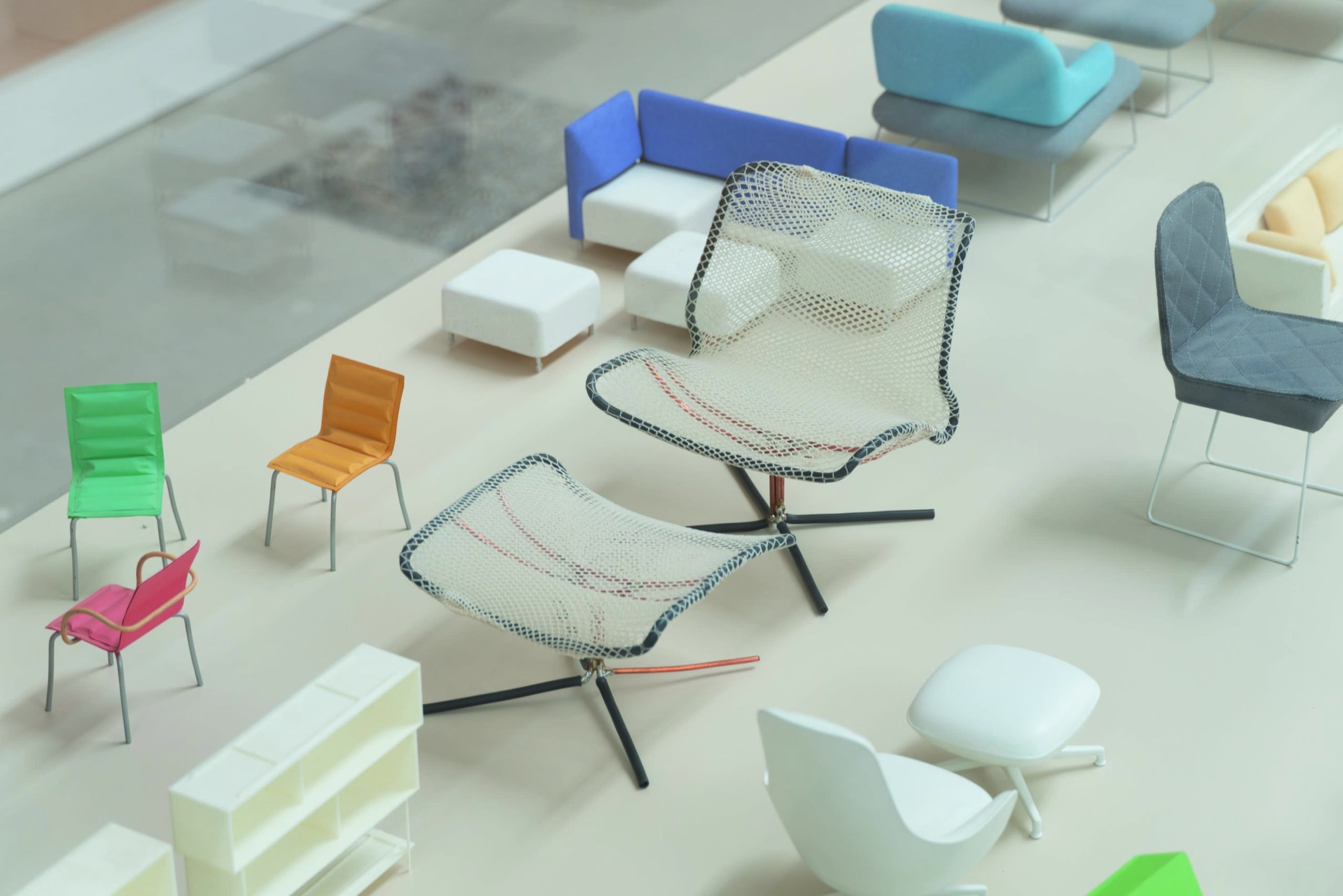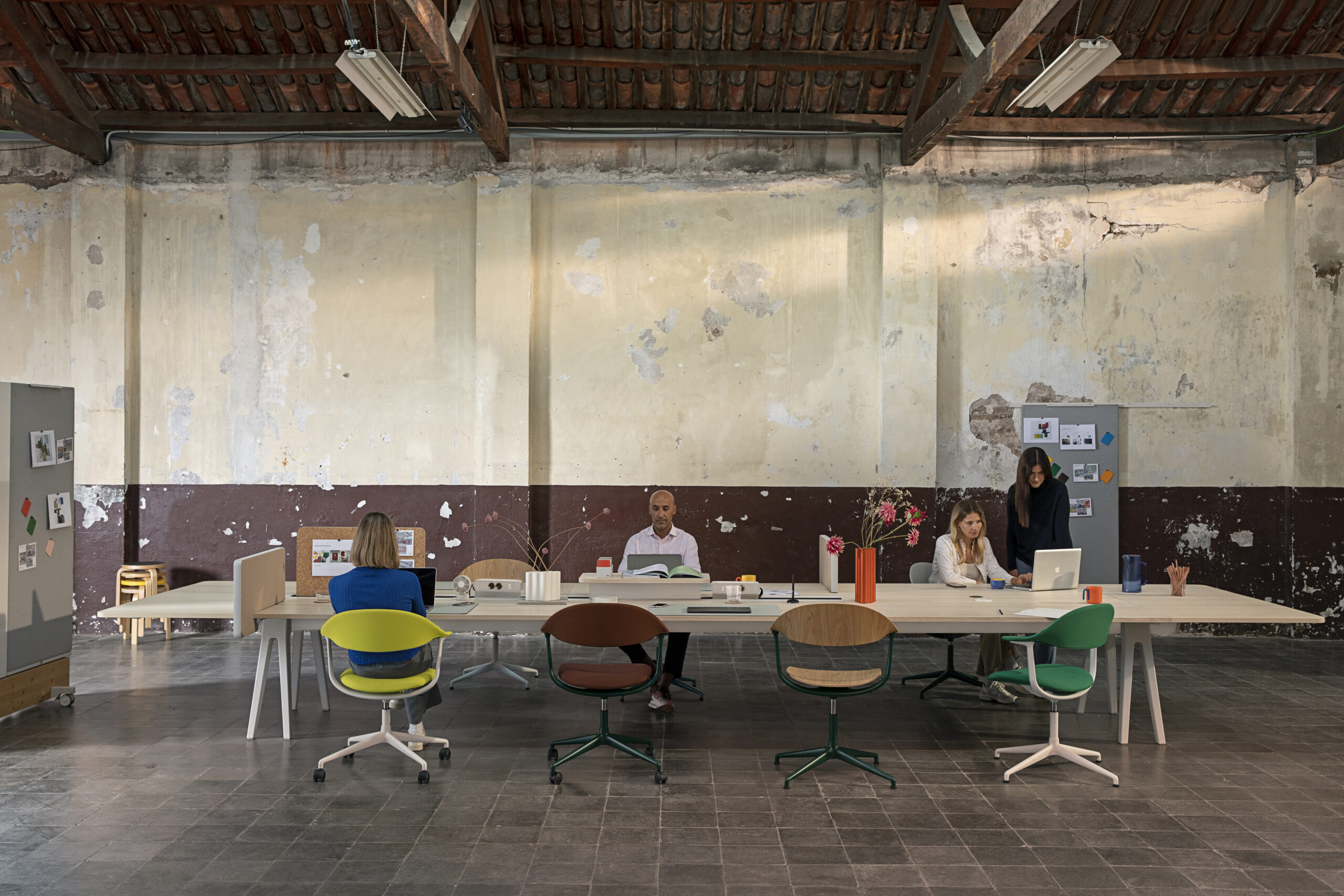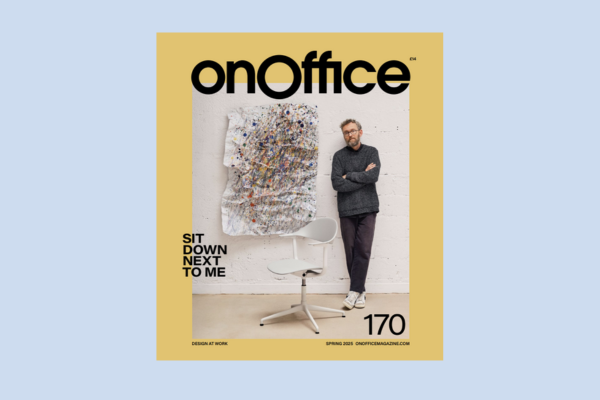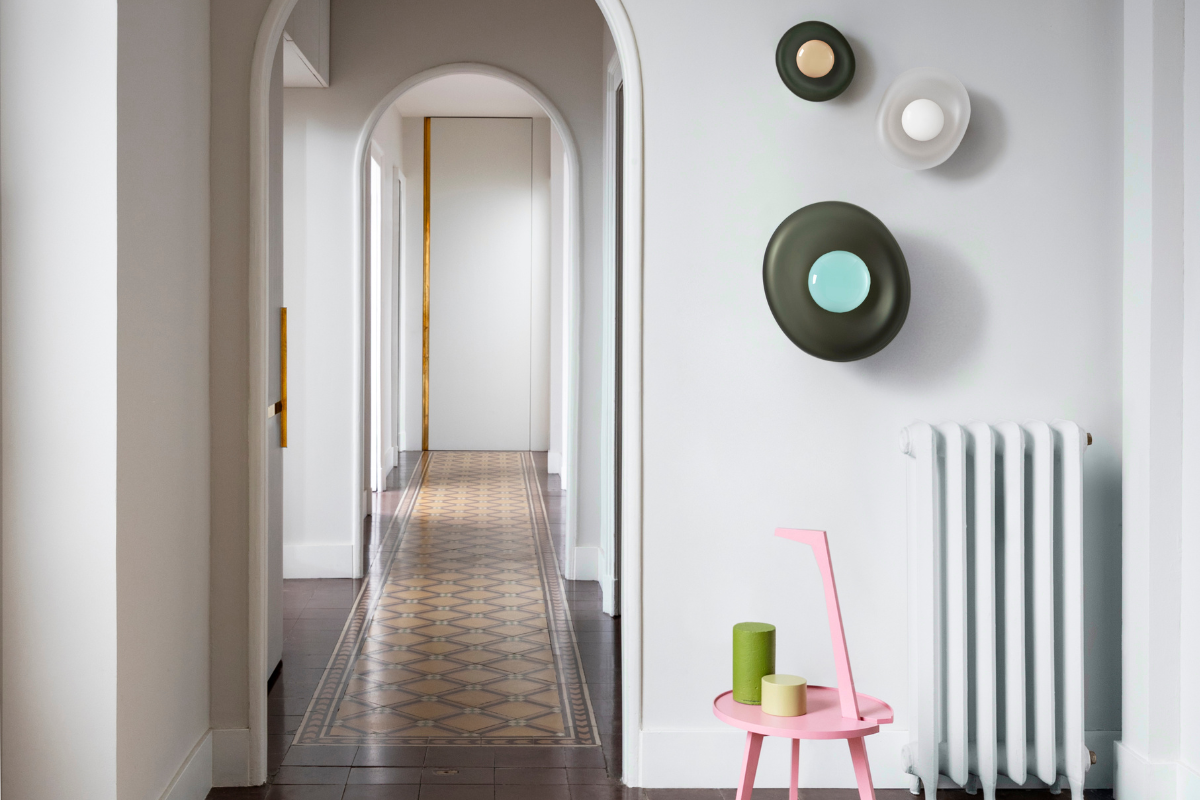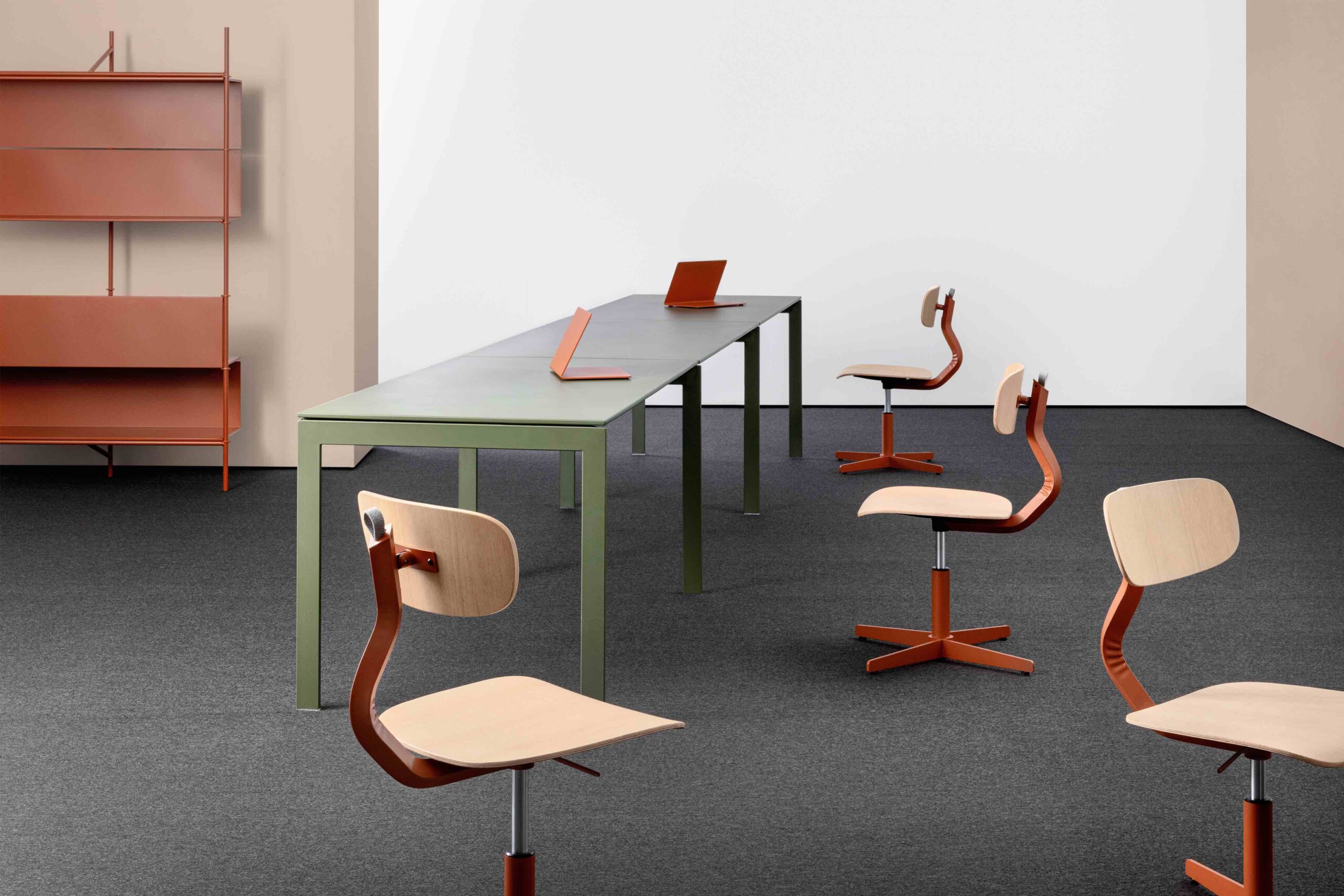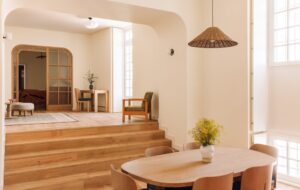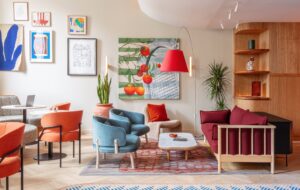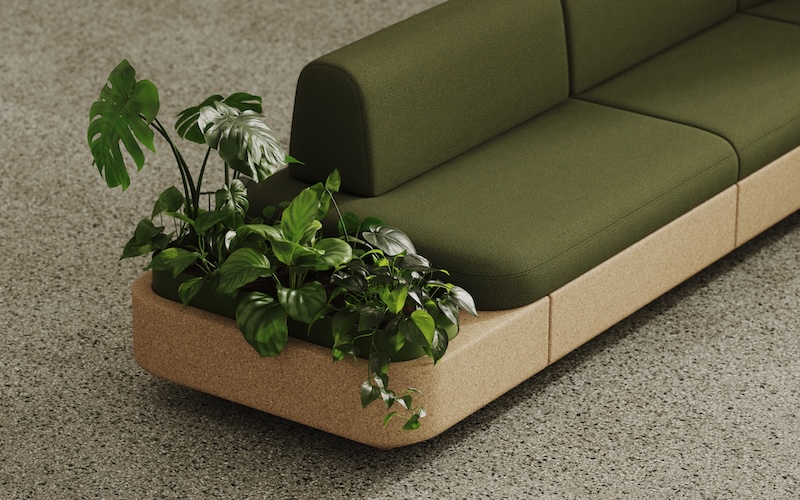
Made from natural materials and with a modular construction, the new Tejo sofa by Isomi is bringing a sustainable flair to workplace interiors.

“We were looking to try and find materials that were as natural as possible when we began the creative process,” comments Paul Crofts, the designer of the recently launched Tejo Sofa by Isomi. Designed with a modular construction, the seating system is not only a versatile option when creating workplace interiors but allows users to be more responsible with their furniture consumption. And, with commercial soft seating often compiled of complex materials that are difficult to recycle, this alternative allows for repair and repurposing with minimum effort thanks to its organic and singular components.
The base of the sofa is made up of cork modules, crafted from compressed cork waste – a by-product of Portugal’s thriving wine stopper industry. Helping to preserve the natural beauty of the country’s cork forest, Isomi is one of many brands now turning to the material as a viable option for furniture production. Cork, as we have come to know, is a regenerative material that uses only the bark of the tree. Upon stripping the bark, it can then be used for a variety of applications while the tree lives on and the bark grows back contributing to a future harvest down the line. While the industry has become a huge source of income for Portugal’s economy, it is more importantly helping to protect and sustain this vital ecosystem for all its wildlife inhabitants.
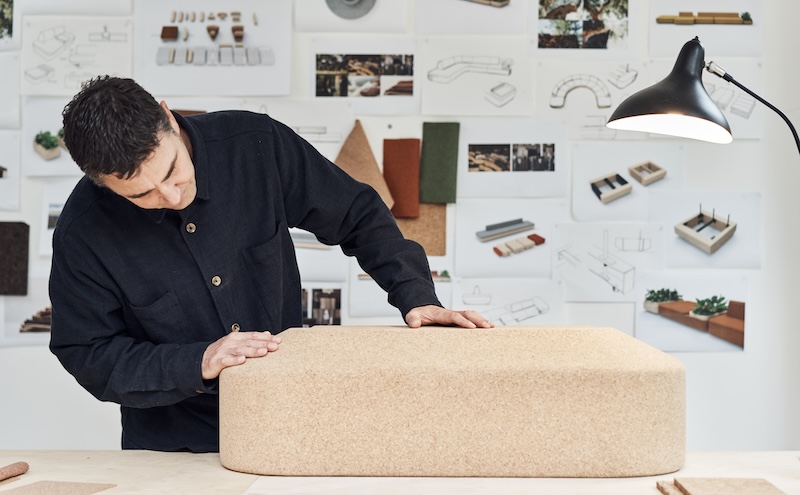
Turning to cork seemed an obvious choice for Crofts, as his intention was not to add another conventional sofa to the market but to create a system which was constructed as responsibly as possible using natural, recyclable materials while offering flexibility, functionality and a timeless and classic aesthetic. Alongside using cork instead of plywood, the sofa filling is also entirely natural. “We’ve replaced foam with a natural latex wrapped in wool wadding,” Crofts explains. “The upholstery is also made from wool and hemp too. Everything about Tejo is based on natural materials.”

Comprised of three main elements: a bench, a single sofa and a double back-to-back sofa, the system also allows for extra components to be added. Table units, planters and curved variations bring a dynamism which help to give it increased functionality wherever it is placed. With Isomi also renowned for its solid surface designs, Tejo represents a new furniture typology for the company and indicates a different design approach. Croft’s aesthetic vision for the sofa took initial inspiration from a visit to a cork factory in Portugal. In witnessing cork blocks stacked up it allowed him to conceive the shape of the modules themselves and laid the seeds of the Tejo system as it can be seen today. The cork components of the sofa are also designed to minimise waste with any offcuts or dust returned to the production cycle and repurposed back into cork blocks.
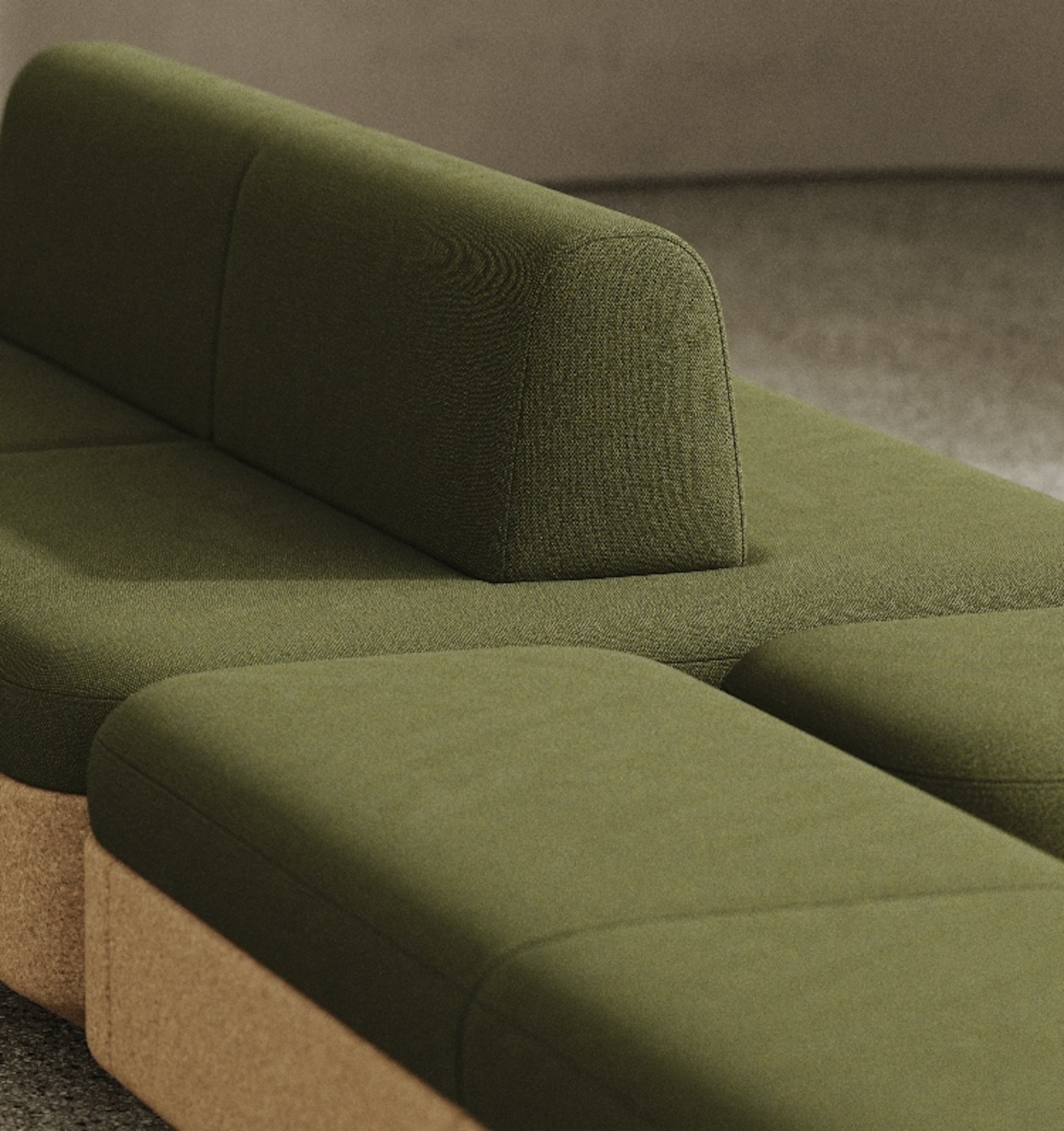
A sculptural concept that allows designers and specifiers to be more playful in their spatial configurations, Tejo’s adaptability offers such versatility that it can be reimagined from space to space if the company moves, or the layouts change. And, with integrated power and USB charging ports, it really does tick every box. Added to other values like its ease of disassembly, part-replacement and recycling options, the system is a future-focused conception that we envision to be seen in workplaces all over the globe – both now and for generations to come.
The Tejo Sofa by Paul Crofts for Isomi begins at £2000 and its configurations can be found here.
Imagery courtesy of Isomi.


